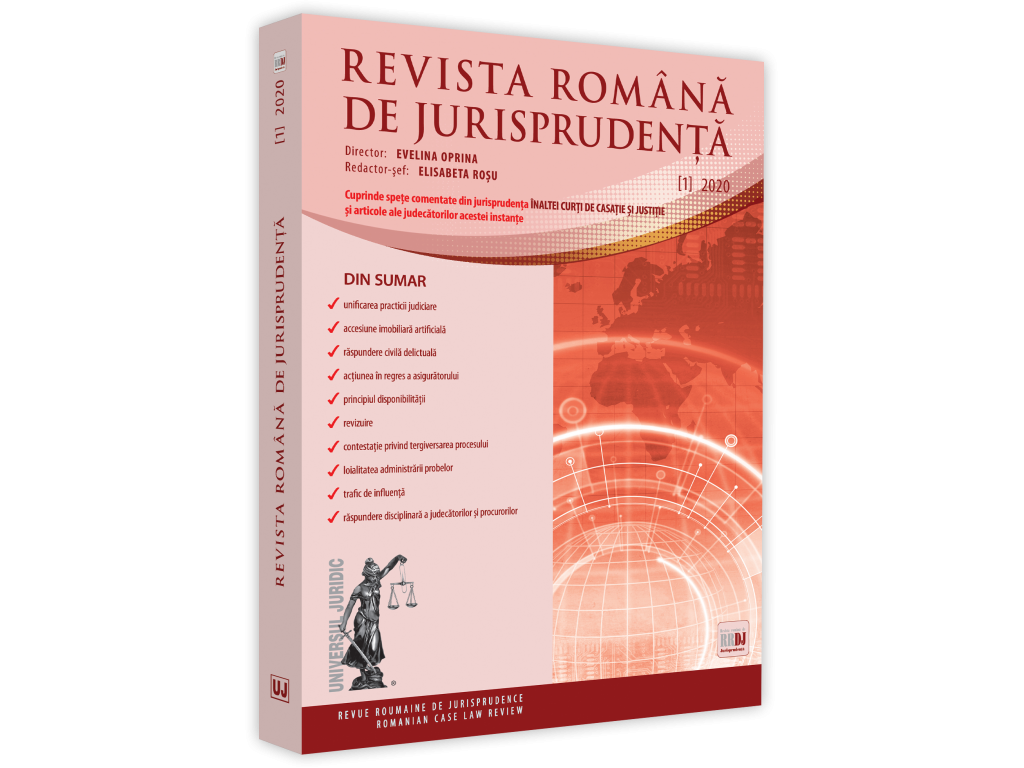Action for rendering a court order replacing a sale-purchase agreement. Limits within which the court may substitute the parties’ consent. Seizure set up by the tax bodies over the asset promised to be sold. Legal interdiction of disposal
DREPT CIVIL ŞI DREPT PROCESUAL CIVIL
Abstract
A characteristic feature of the action by which it is requested a court order replacing a sale-purchase agreement is that, in virtue thereof, it is intended that the court should replace the consent of the promissory seller, in those cases in which the latter unreasonably refuses to conclude the sale-purchase agreement, even if it committed itself to this end under a prior agreement. The possibility of the court to deliver such a court order comes under several conditions which should be cumulatively fulfilled – among which we can also find the condition that there is no legal impediment for the conclusion of the sale, a requirement arising from the general obligation of each subject of law, to comply with the law and public order, and the freedom to contract also has such a limitation established both under Articles 966 and 968 of the Civil Code of 1864 and under Articles 1169 and 1236 para. 2 of the Civil Code adopted in compliance with Law no. 287/2009. Thus, the court is required to substitute only the consent of the party which has promised to sell, within the same limits in which the expression of this consent was unreasonably refused, since it was not allowed to remove other (factual or legal) obstacles which could hinder the conclusion of this agreement which transfer the ownership right. Given that the existence of the legal impediment to consent to the sale was acknowledged, derived from the imposition of the measure of seizure over the asset in relation to which the defendant assumed the obligation to sell, the examination and even the possible finding in the sense that the other conditions would have been fulfilled cannot determine the granting of the action, since the issues relating to the payment of the price and to the bad faith behaviour adopted by the promissory seller were irrelevant. The debtor capacity of the promissory seller within the enforcement procedure in progress, at the same time as the existence of the ownership right over the pursued asset (which is also the asset promised to be sold) in its estate, shall determine the acknowledgment of the application of provisions of Article 151 para. 9 and 10 of the Code of Fiscal Procedure, in relation to which the debtor’s right to consent to the conclusion of any document of disposal, was limited. Therefore, given that the law – under Article 154 para. 9 and 10 of the Code of Fiscal procedure – relates to this measure not only an effect of preservation of the seized asset, but also the sanction of nullity of the legal acts which would be concluded by disregarding the respective interdiction, the court cannot deliver a judgment of equivalent effects to a sale-purchase agreement.








